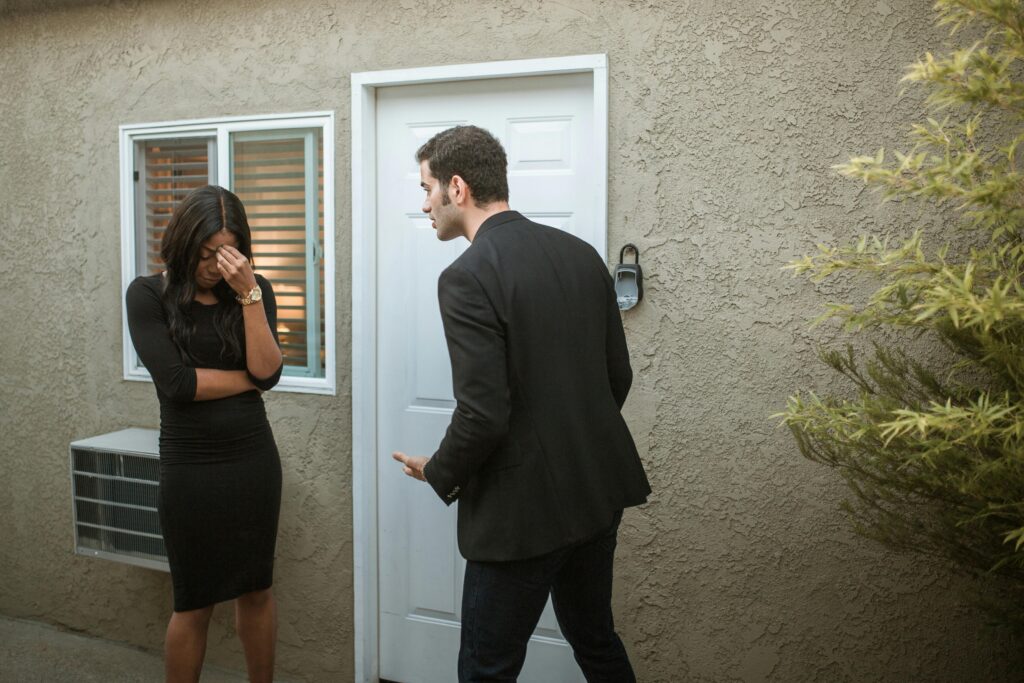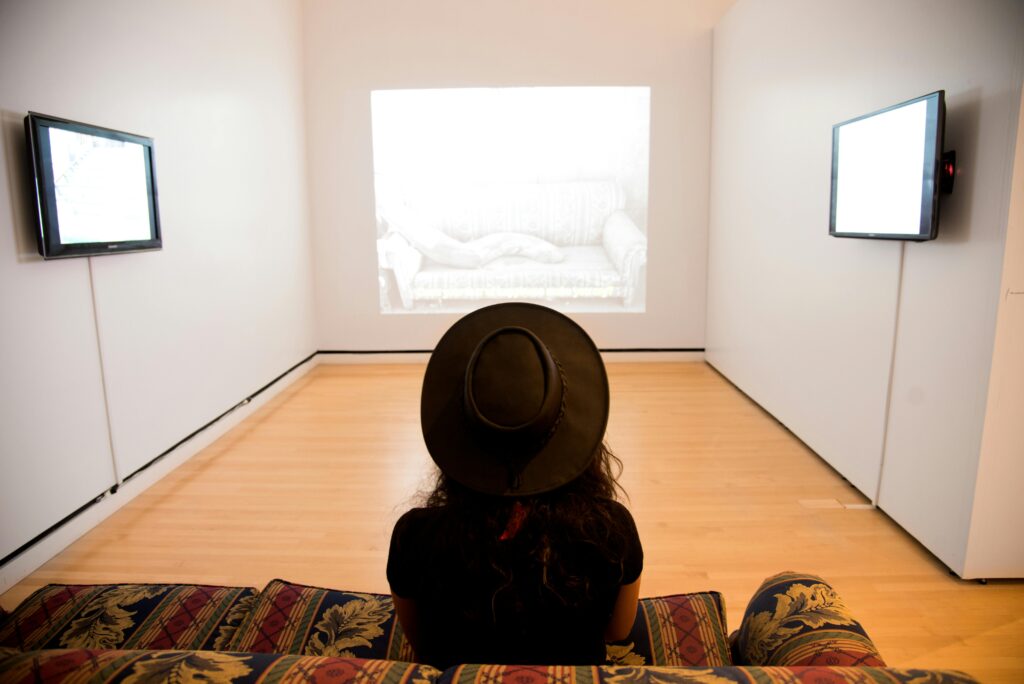Marriage, at its best, thrives on communication, trust, and shared affection. But sometimes, emotional distance creeps in quietly. When wives feel unhappy, they rarely voice it outright; instead, they express it through subtle actions, changes in priorities, and quiet withdrawal. These signs often go unnoticed until the disconnect feels too large to bridge. Recognizing these gentle but telling shifts can help partners understand and rebuild the emotional closeness they once shared. Here are 18 things wives quietly do when they feel unhappy in their marriage, each revealing more than words could say.
1. She Starts Withdrawing Emotionally

When emotional connection fades, wives often begin to detach quietly. They stop sharing small joys, skip deeper conversations, and avoid expressing vulnerability. Instead of confiding about their day or their worries, they keep things short and impersonal. This withdrawal is a defense mechanism; it helps them avoid disappointment when they feel unheard or undervalued. Over time, laughter becomes rarer, smiles are forced, and intimacy is limited to surface-level interactions. This subtle change signals emotional exhaustion, showing she no longer feels safe opening her heart as freely as she once did.
2. She Prioritizes Time Alone

At first, her need for space might seem harmless: a night out with friends, long walks, or late nights reading alone. But gradually, her solitude becomes her comfort zone. Time apart isn’t just about recharging anymore; it’s an escape from emotional tension. She may linger at work or take unnecessary errands simply to avoid being home. What once was a shared life begins to feel divided. Her preference for isolation becomes a quiet protest, a way to breathe freely without confrontation or disappointment in the background.
3. She Stops Trying to Argue or Fix Things

Silence can be more unsettling than shouting. When a wife stops arguing, it’s often not because she’s at peace; it’s because she’s given up. She no longer sees the point in explaining her side or pushing for change. Disagreements that once sparked emotion now meet with resignation. This detachment isn’t forgiveness; it’s fatigue. It signals that she’s stopped hoping things will improve. The absence of conflict might look calm, but it’s really a sign she’s emotionally checked out and no longer fighting for the relationship she once cherished.
4. She Invests Emotionally Elsewhere

When she feels emotionally starved, a wife may begin seeking connection elsewhere, not romantically, but through deeper friendships, hobbies, or online communities. She finds warmth where she feels seen and heard. These emotional outlets help fill the void left by her partner’s indifference. The danger lies not in betrayal but in redirection; the emotional intimacy that once belonged to the marriage now finds another home. This shift, though quiet, can deepen the divide if her spouse remains unaware of how distant she’s grown emotionally.
5. She Reduces Physical Affection

Affection is often a mirror of emotional closeness. When love feels strained, a wife may pull away physically, avoiding hugs, turning away in bed, or skipping casual touches that once came naturally. This isn’t cruelty; it’s discomfort. Physical intimacy without emotional connection feels hollow, even painful. Her reduced affection becomes a silent message: she’s not feeling loved, desired, or emotionally safe. While she may still fulfill her marital roles, the warmth behind her gestures fades, replaced by a quiet sadness she struggles to put into words.
6. She Focuses Heavily on Children or Work

When her marriage stops being her emotional anchor, a wife often redirects her energy elsewhere, usually into her children, her job, or personal goals. These become areas where she feels appreciated and in control. She might volunteer for extra projects or spend long hours helping with homework, not out of avoidance but fulfillment. Her identity begins shifting away from being a wife toward roles that offer tangible reward. This redirection isn’t resentment, it’s survival. She’s finding stability in the places her marriage no longer provides it.
7. She Stops Sharing Her Feelings

When every attempt at communication feels met with dismissal or defensiveness, a wife slowly stops talking about her emotions altogether. She switches from openness to guardedness, keeping conversations polite but shallow. This self-censorship protects her from feeling invalidated. What her partner perceives as peace is actually a quiet surrender. She no longer believes expressing herself will make a difference. Over time, this silence becomes the loudest indicator of her unhappiness, as her voice fades from the emotional landscape of the marriage.
8. She Starts Remembering Better Times

When the present feels cold, the past becomes comforting. She may often reflect on the early days of their relationship when affection, laughter, and closeness were effortless. These memories aren’t just nostalgia; they highlight what she’s missing now. Her frequent reminiscing is a quiet way of saying she misses the version of her marriage that felt alive and loving. Sometimes she’ll mention how “things used to be,” not as a complaint but as a quiet plea for her partner to notice how far they’ve drifted apart.
9. She Becomes More Independent Financially

When emotional uncertainty sets in, financial independence becomes a form of security. She might start managing her own savings, budgeting privately, or exploring career growth that ensures stability. This isn’t necessarily a sign she plans to leave; it’s about reassurance. When she feels unsupported emotionally, self-reliance offers strength. Her growing financial independence quietly reflects an internal shift: she no longer feels safe depending on her partner completely. It’s a subtle move toward self-protection that speaks volumes about her emotional state.
10. She Stops Making Future Plans Together

Future plans are built on hope, and when that hope fades, she stops including her spouse in long-term dreams. Discussions about vacations, renovations, or retirement become less frequent. Instead, she focuses on short-term or individual goals. This silent exclusion reveals her doubt about the relationship’s longevity. It’s not necessarily that she’s decided to leave, it’s that she’s stopped imagining a shared future. When the marriage feels uncertain, her instinct is to stop planning around someone she’s no longer sure will emotionally accompany her ahead.
11. She Smiles, But It Doesn’t Reach Her Eyes

Unhappy wives often become masters of disguise. They smile at social gatherings, keep conversations pleasant, and maintain appearances, but those closest to them notice the light has dimmed. Her laughter feels rehearsed, her cheerfulness polite. She hides her sadness to avoid pity or confrontation. Behind closed doors, the energy drains away, replaced by quiet reflection or tears. This outward calm is a protective mask, a way to preserve dignity while navigating inner loneliness. It’s a quiet performance born from emotional survival.
12. She Avoids Intimate Conversations

Deep, honest conversations require vulnerability, and when she feels disconnected, those moments become uncomfortable. She’ll change topics, give brief answers, or avoid emotional depth altogether. It’s not that she doesn’t want closeness; she’s protecting herself from rejection or argument. What used to be heartfelt discussions about dreams or fears now feels like navigating fragile ground. Her avoidance is subtle but consistent, signaling she no longer feels emotionally safe enough to let her guard down fully with her partner.
13. She Engages in More Self-Improvement Activities

Suddenly joining the gym, changing her wardrobe, or pursuing new hobbies may seem like personal growth, but it can also signal emotional distance.When she feels unhappy, focusing on herself becomes a way to regain confidence and control. These self-improvement efforts offer independence and healing where her relationship feels stagnant. While such changes are positive individually, they may also indicate she’s building an identity that no longer depends on her marriage for fulfillment or validation.
14. She Develops Subtle Irritation or Indifference

Over time, small things that once felt endearing begin to irritate her. The way her spouse talks, eats, or jokes may trigger quiet annoyance. This irritability isn’t always anger; it’s frustration that’s been suppressed too long. Alternatively, she may become indifferent altogether, showing little reaction to things that once mattered deeply. Both irritation and indifference reflect emotional withdrawal. They signal that affection has been replaced with emotional fatigue, and she’s quietly mourning the loss of closeness she no longer feels.
15. She Seeks Emotional Validation Online

In the digital age, many wives find subtle comfort in social media or online communities when they feel unseen at home. Liking posts, sharing quotes about self-worth, or engaging in supportive conversations becomes a form of emotional expression. These digital spaces offer understanding without judgment. Though harmless on the surface, this online validation can reveal how disconnected she feels in real life. It’s a quiet cry for acknowledgment, even if it comes through screens instead of the partner sitting beside her.
16. She Starts Avoiding Shared Activities

Activities once enjoyed together, movie nights, dinners out, or weekend getaways, begin to lose their appeal. She may make excuses to avoid them or suggest doing things separately. This avoidance isn’t laziness; it’s emotional distance taking physical form. Shared experiences remind her of what’s missing, so she retreats into routines that feel emotionally safer. Her disinterest in couple time is a signal that the bond she once cherished now feels like an obligation instead of a joy, marking one of the clearest signs of disconnection.
17. She Appears Happier Around Others Than at Home

When she feels unseen at home, her light often shines brighter elsewhere. Around friends, family, or coworkers, she may seem more energetic, expressive, and joyful. This contrast highlights the emotional gap between her public and private lives. It’s not deceit, it’s relief. Outside interactions give her validation and laughter that the marriage currently lacks. While her partner might not notice the difference, those around her often can. This shift quietly reveals where she now feels valued and emotionally fulfilled.
18. She Begins Imagining Life Without Her Partner

Perhaps the most telling sign is when she starts picturing life alone, not necessarily making concrete plans, but daydreaming about freedom, peace, or rediscovering herself. These thoughts don’t always mean she’s ready to leave, but they reflect emotional detachment. When she starts imagining happiness that doesn’t include her spouse, the bond has already weakened. It’s a quiet, private form of letting go, one that happens long before words are spoken or decisions made, showing how deeply unhappiness has settled within her heart.
Comments